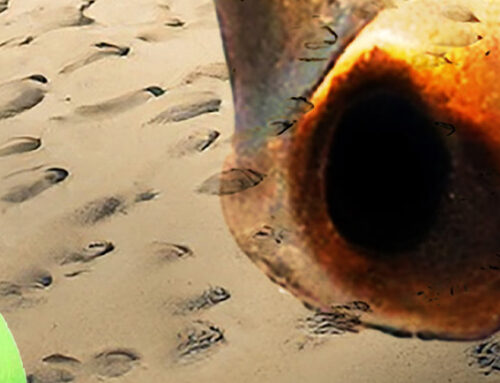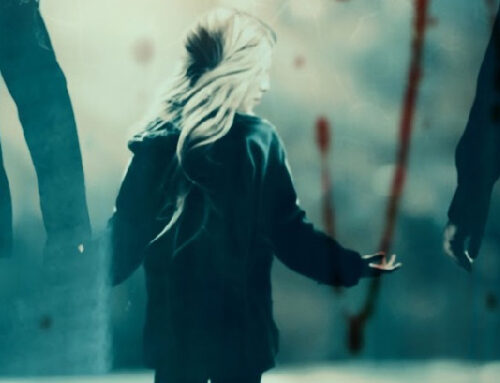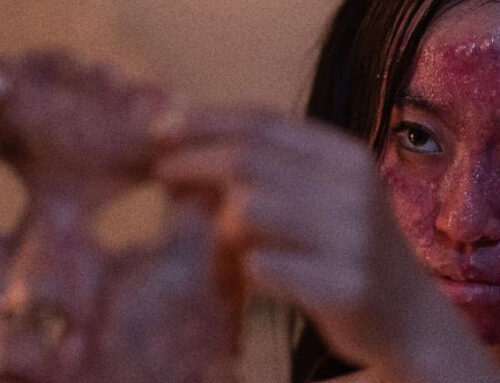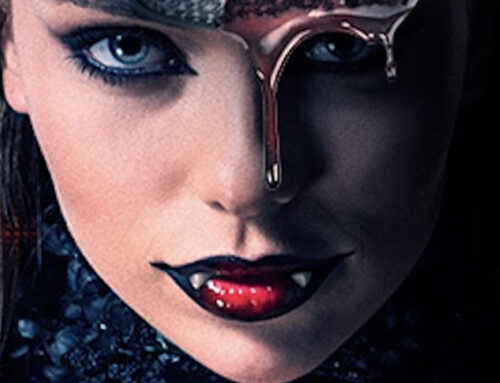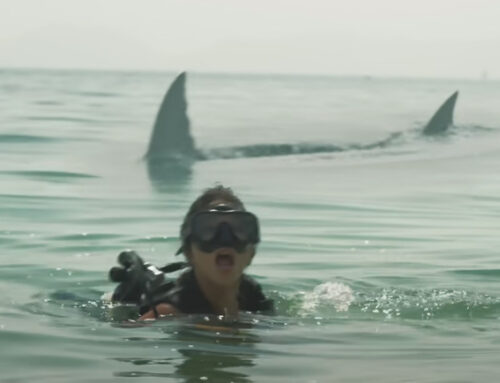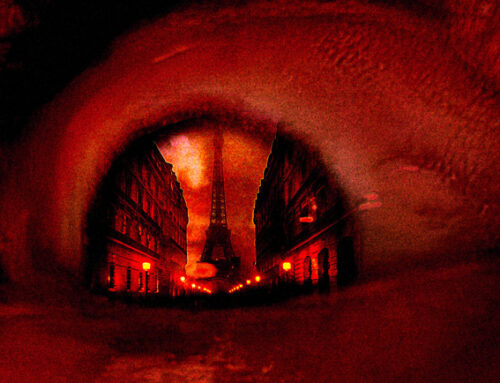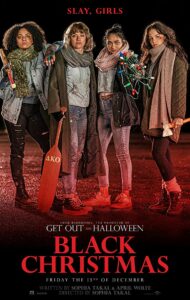 Screenwriter and actor April Wolfe has received the ultimate Christmas present for a filmmaker. Today, her very first feature film hits theaters nationwide in the form of BLACK CHRISTMAS, a new horror thriller from Blumhouse Pictures. Creative and thoroughly steeped in the horror genre, Wolfe joined co-writer and director Sophia Takal in attempting to breathe new life into not just a well-known classic, but into the slasher sub-genre. What results is a new approach to the classic tropes.
Screenwriter and actor April Wolfe has received the ultimate Christmas present for a filmmaker. Today, her very first feature film hits theaters nationwide in the form of BLACK CHRISTMAS, a new horror thriller from Blumhouse Pictures. Creative and thoroughly steeped in the horror genre, Wolfe joined co-writer and director Sophia Takal in attempting to breathe new life into not just a well-known classic, but into the slasher sub-genre. What results is a new approach to the classic tropes.
Wolfe took time to chat with Norm from HorrorBuzz on the process it took to bring the story to life, how she and Takal developed a writing relationship, and how the marginalized are represented in horror.
HorrorBuzz: Congratulations on Black Christmas, your first feature.
April Wolfe: Yes.
HB: So Best Christmas Ever?
AW: Yeah, I don’t even believe that it happened? So… Once I believe it then yes it will be the Best Christmas Ever.
HB: You co-wrote with the director Sophia Takal and How was that, working with her as a writer.
AW: Oh it was fantastic. She is a really great collaborator, we had a kind of instant shorthand. We had an innate respect for each other’s work. We would bounce ideas off each other. We are also extremely fast writers, so we ended up constantly moving through drafts and whittling things down pretty quickly.
HB: What were things that echo her voice as opposed to yours?
AW: I think she is really good at these thoughtful moments, that’s her deep strong suit. If you have ever seen her movies there’s so much subtext that’s going on. She also puts those moments in because she knows how she’s going to direct them. I am more of an action-oriented person I would write the action things and we kind of put those two together those two different styles. You look at the script now though and it’s kind of hard to tell where one person ends and the other begins.
HB: That’s cool because it sounds like she could guide you in writing, but also be able to plan how she would direct things.
AW: Yeah, there would be moments where she would read what I wrote and say, “Okay, this is great, but it’s not my style. This isn’t something I can direct.” Then I would hand her a few options that she could build from.
HB: How did you end up at Blumhouse?
AW: Sophia directed an episode of INTO THE DARK and that went over really well. They were just really impressed with what she could do. It was about that time that there was a sense that they wanted to retain her. They were also looking to expand their slate to be more inclusive. That meant that there was going to be kind of like a huge upswell of female-centric or queer stories or anything in between. I think they felt that with her being so great at being so little they felt she would be a great choice to take this huge story and do something with a small budget. I think they were right! I got pulled into the process because she was looking for notes on her script. I read one of her earlier drafts and I gave her a ton of notes. I wanted to set her up for success. She really responded to my notes and the opportunity came to actually co-write with her using the kernel from the early draft then start from the beginning. We tried not to think about what a remake of Black Christmas would be, and instead tried for a reimagining in 2019.
HB: So this was definitely set up as a reimagining of Black Christmas.
AW: Yes.
HB: Were you a fan of the original?
AW: Oh yeah. I Fucking love the original. It’s one of my favorites. I just think Bob Clark was really talented in what he did in collaborating on the script. I loved the way he shot it and kind of borrowed this European Giallo style and infused it with this new North American slasher movie. I just hate it that when the slasher genre really blew up in the 80’s more people didn’t know his work and integrate it into their work. By that, I mean that they didn’t take these really really great, fleshed-out characters and work with them. It was sad, it was just the murders all the time. I felt like he was able to juggle both of those things and that is something that Sophia and I really want to emulate. Because even if we weren’t doing a direct remake we wanted to have his spirit in there as much as possible.
HB: What is it that you liked or didn’t like about the original and that you wanted to bring to the new film.
AW: Well, when it comes to the killer, I am trying to talk around spoilers, in the original the voice from the phone, Billy, he was a compilation of something like six characters I think. You kind of see him in Giallo style, approaching his prey. It was obviously groundbreaking at the time in that you didn’t know who was doing it, but you knew he wouldn’t stop. The thing is we wanted to play with that, but we were also doing a slasher movie in 2019. Slasher movies have gotten stagnant because they are going through a meta-narrative. So you are constantly commenting on what a slasher is as you are watching the slasher, calling back to Wes Craven’s Scream. For us, I think it was really important for us to push the genre further without using the meta-narrative. That’s difficult and you are gonna get a lot of pushback because it’s an established canon. But we are hoping people like it and we hope we have kind of found a way for it. The slasher genre has the ability to be such a great commentary for the era that they are made in. There is so much you can say. So for us, that killer, for instance, having a killer that people don’t know, sometimes it felt depressing because we know they would be going after the marginalized. So we had to come up with something that would let us finish the script.
HB: Was that your first objective? Giving a voice to the marginalized?
AW: Yeah. Yeah, and I think that people are going to talk about women in a binary sense, like “Man vs. Woman”. That exists in it to an extent but it’s more like men vs. men., queers vs. hetero people, and there’s just a lot of discussion that needs to happen that we hope we enveloped.
HB: In saying something that important it is easy to make a horror film. It’s the most flexible genre. You can even touch on difficult subjects. In writing a script as a horror script, how do you create the fear, the horror in it?
AW: I think, you know, for us it was a combination of putting our own experience into it and then focusing on pacing and knowing when to slow down. We wanted to make a mainstream script but we wanted to give those moments. We wanted to show what was scary to us. There is a lot of Sophia and I projected onto the characters. That’s whether they are male or female characters.
HB: You are obviously a horror fan. What are your inspirations?
AW: I am very eclectic. I grew up on slashers, April Fools Day, A Nightmare on Elm Street, and stuff like Ghoulies and Critters but I am not scared by anything anymore. The things that make my skin crawl. Like The Invitation. I sat watching it thinking, I know something bad is gonna happen. That’s a perfect film to emulate, it’s so perfect and tiny and impactful and I think it has longevity. I love movies with longevity, like the original Black Christmas. That’s built to last. Sophia and I hope that we have built something that is built to last.
HB: Last Question, Fruitcake. Yes or no?
AW: I mean if it’s made correctly? But I mean, I am a garbage can I will eat anything.
It was a true pleasure to talk to Wolfe on this project. We sincerely hope to see more from her in the future.
BLACK CHRISTMAS releases today nationwide. You can read our review here.

